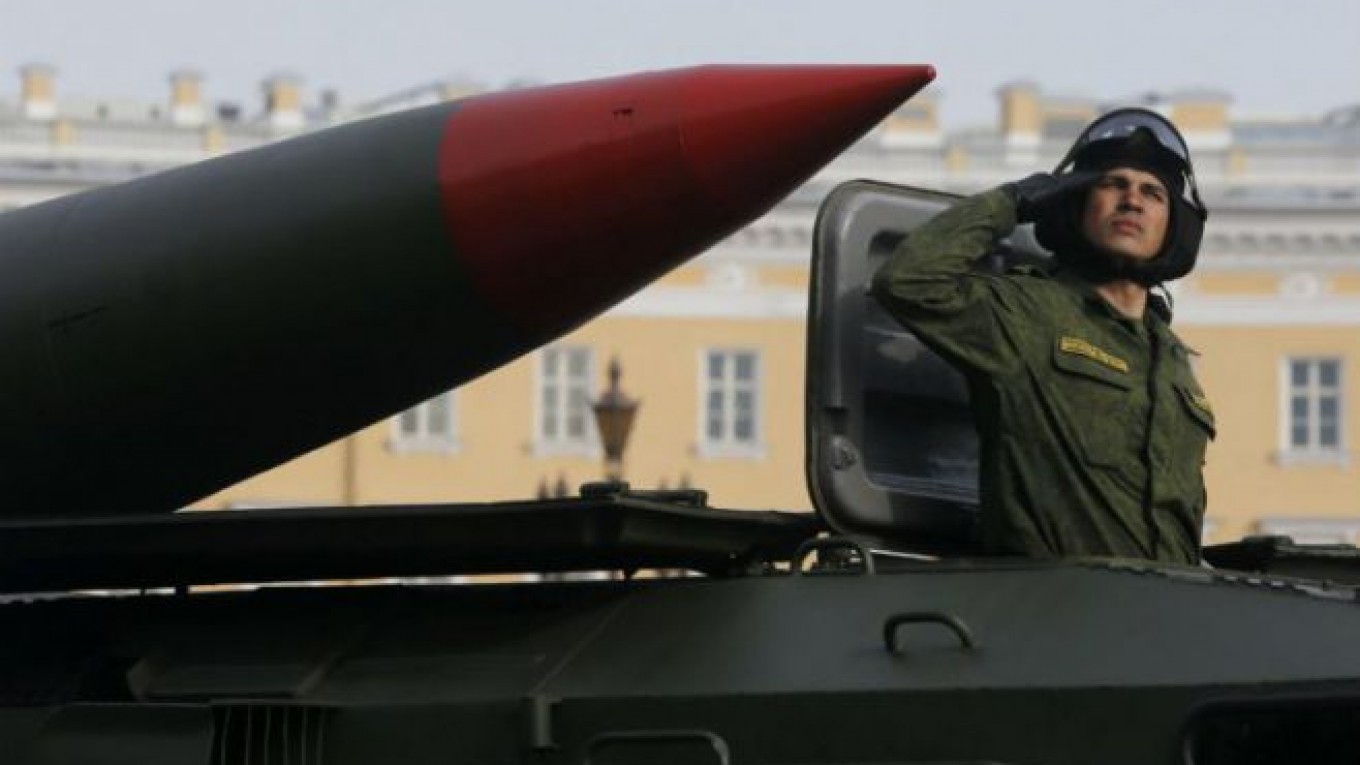U.S. missile defense “cannot stop” Russia's nuclear weapons, a top minister said, in an apparent? reversal of Moscow's policy of slamming U.S. anti-ballistic missile capability as a dire threat to Russian security.
Deputy Prime Minister Dmitry Rogozin, who oversees Russia's military-industrial complex, boasted of unspecified breakthroughs in Russian military technology during a talk show on the state-run Rossiya 1 television channel on Sunday night.
“We will not disclose those technical details to anybody,” Rogozin said, according to comments quoted by Interfax news agency. “But I can tell you one thing: The work conducted today on combat missile technologies … shows that neither the current, nor even the projected American missile defense system could stop or cast doubt on Russia's strategic missile potential.”
U.S. missile defense has long been a sore point between Moscow and Washington. The United States in 2009 scrapped plans for missile defense bases in Poland and the Czech republic and switched focus to sea-based capability in part to mollify Russian opposition.
Russia had insisted that missile defense is a threat to its own security — a view aggressively advocated by Rogozin during his stint as Russia's ambassador to the U.S.-led NATO alliance from 2009 to 2011. The United States — and Western military analysts — maintained that the system is designed to protect it and its European allies from Iranian missiles, and that Russia was not a target.
Following Russia's annexation of Crimea last year, U.S. Senator Joe Donnelly, a Democrat from Indiana, asked at an April Senate hearing whether the United States should strengthen missile defenses in Europe in response to Russia having “invaded” the Ukrainian peninsula.
A Message from The Moscow Times:
Dear readers,
We are facing unprecedented challenges. Russia's Prosecutor General's Office has designated The Moscow Times as an "undesirable" organization, criminalizing our work and putting our staff at risk of prosecution. This follows our earlier unjust labeling as a "foreign agent."
These actions are direct attempts to silence independent journalism in Russia. The authorities claim our work "discredits the decisions of the Russian leadership." We see things differently: we strive to provide accurate, unbiased reporting on Russia.
We, the journalists of The Moscow Times, refuse to be silenced. But to continue our work, we need your help.
Your support, no matter how small, makes a world of difference. If you can, please support us monthly starting from just $2. It's quick to set up, and every contribution makes a significant impact.
By supporting The Moscow Times, you're defending open, independent journalism in the face of repression. Thank you for standing with us.
Remind me later.


